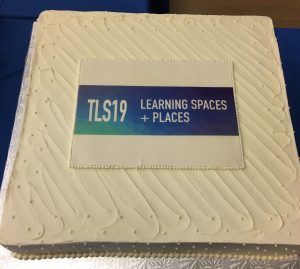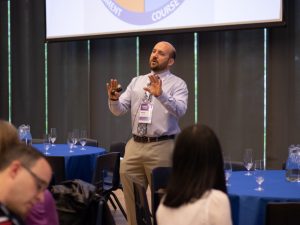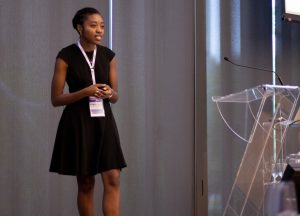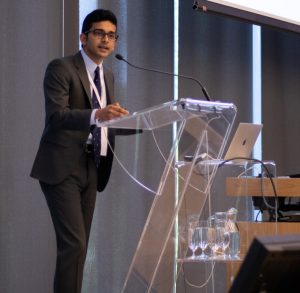2019 Learning Spaces + Places
May 28, 2019
Desautels Hall, Rotman School of Management, University of Toronto
95 St. George Street
Keynote Presentations:
WATCH MORNING PRESENTATIONS (link to video)
Adam Finkelstein (link to presentation slides)
FULL AGENDA for TLS2019
The CFP is also available in PDF format.
Symposium Theme
“If you put enough smart people together in one space, good things happen” (Erik Hersman).
This tri-campus event, hosted by the Centre for Teaching Support & Innovation and the Desautels Centre for Integrative Thinking, Rotman School of Management, is intended to stimulate discussion and the sharing of research, practices and experiences around teaching and learning. It is a cross-divisional forum that allows faculty, librarians and staff to celebrate their commitment to teaching and learning.
The 2019 Teaching and Learning Symposium takes an expansive approach to conceptualizing the learning environments that we create for our students and ourselves. In particular, we will focus on the SPACES and PLACES in which learning occurs: not only the physical space of the classroom and laboratory – including the new active learning classrooms available on all three campuses or in the online environment – but also the diverse ways that we use and occupy spaces at the University of Toronto and in our communities at large. We will examine how spaces and places, both figurative and literal, impact, define and transform teaching and learning opportunities across U of T.
Symposium Overview
The Symposium will feature an invited plenary followed by concurrent sessions. We encourage prospective participants to incorporate students into proposals, either through direct sharing of their experiences or as co-facilitators where appropriate.
Proposals
“You live in the image you have of the world. Every one of us lives in a different world, with different space and different time” (Alejandro Jodorowsky).
We will explore this year’s theme through the following 5 conference threads – they are defined broadly and are not limited to the examples or descriptions provided. Additionally, across these 5 thematic groups, we invite contributions focused on conceptual and theoretical questions related to teaching and learning spaces. We invite proposers to explore and examine theories, models and methodologies for understanding, defining and creating learning space. We encourage considerations of the conceptual and theoretical work that both learners and teachers do to develop, challenge or query learning spaces. Lastly, we hope for connections between the conceptual and theoretical – what links theory to practice in our learning spaces?
We welcome submissions that take up the questions noted below and that pose unexpected, new, critical and scholarly questions in the following threads:
- Inclusive spaces: How can we as educational designers and instructors embrace the many dimensions of diversity on the University campus? What are the challenges and obstacles we need to overcome in order to create more inclusive spaces? How can we create more equitable and accessible spaces through our pedagogical practices? How can we aim for the development of a global and transcultural perspective – along with its attendant modes of learning – in our teaching?
- Indigenizing spaces: How are we integrating Indigenous perspectives into new and existing curricula? How can educational spaces be reconceptualised to include and reflect Indigenous ways of knowing? What opportunities for inclusion and change are we creating in the pedagogical spaces and places of our U of T programs in light of the Truth and Reconciliation Commission’s Calls to Action?
- Physical spaces: How does the physical classroom or lab or online or hybrid environment support innovation in teaching and learning? How do the physical and digital places where students and instructors collaborate and interact shape what is possible pedagogically? How does space impact the relational aspects of coming together to learn?
- Relational spaces: How can we, as instructors, meaningfully harness and impact the interpersonal experiences of learners through our pedagogical practices and use of learning spaces? How do learning spaces affect instructors – both in their experiences of teaching and in the emotions that surround and affect the work? What are the interactive possibilities for instructors and learners as we explore emerging pedagogies?
- Dialogical spaces: Building on the interaction component outlined in the above thread, how can we leverage and expand the discursive and dialogical space in which learning as a collaborative enterprise takes place? Are there ways of augmenting the basic repertoire of discursive moves and manoeuvres in the classroom (assertions, questions, queries, challenges, and responses) to increase the interactivity and engagement of all learners?
Session Formats
Proposers are asked to align their proposal with one or more of the “space” conference threads, and submit a general outline of the session (maximum 250 words), including outcomes (for all formats), citations (for Research on Teaching and Learning; maximum 5) and interaction processes (for workshops).
Interactive Workshops (1 hour)
Interactive workshops combine presentations or discussions with activities that engage all participants and encourage discussion and reflection. Prospective facilitators are asked to submit a general outline of the session, including outcomes and interaction processes.**
Research on Teaching and Learning (completed or in-progress; 20 minutes)
Each Research on Teaching and Learning session will be comprised of three 15-minute talks, allowing 5 additional minutes for discussion at the end of each presentation.
These sessions will focus on sharing a teaching and learning-focused research project, providing a snapshot of the research design, research methods and initial findings from in-progress projects or results from a recently completed research project. Prospective facilitators are asked to submit citations with their proposal.
Lightning Talks (20 minutes)
These sessions will be comprised of three 15-minute Lightning Talks, allowing 5 additional minutes for discussion at the end of each presentation. The sessions will consist of moderated quick talks covering a variety of areas. Example formats for Lightning Talks include:
Teaching strategies: these sessions will focus on sharing effective teachings strategies, including the purpose, intended outcomes, facilitation and examples. Discussion regarding how others can apply the strategies in their own teaching contexts should be addressed.
Nifty assignments: these sessions focus on the sharing of a ‘nifty assignment’, giving details of the development and administration of the assignment, student outcomes, and strengths and challenges of the assignment.
Symposium-You (30 minutes)
These participant-driven roundtables give further opportunity for reflection on teaching-related issues or innovations with a focus on facing challenges and problem solving. Discussions can be based around personal innovations and practice, teaching dilemmas, or bring forward an idea for the group to consider. Facilitators will give a short, 5-minute introduction to their topic, followed by 25 minutes of discussion.
These sessions should be considered dialogical and are primarily intended to foster reflection on teaching challenges and issues, and discussion of possible creative responses drawn from both personal experience and wider sources. Prospective facilitators are asked to submit a session title and an overarching discussion question. The submission should also include 3 to 5 discussion points that will be used to guide the Symposium-You session.
The Call for Proposals has closed.
** Interaction processes are defined as those activities that allow participants to engage with each other in discussion and reflection, and/or practice or apply what they are learning, beyond the standard question-and-answer period. Examples of interaction activities might include small group work focused on a specific task or prompt, think-pair-share or write-pair-share activities, partner interviews, variations of 3-2-1 activities (e.g. note 3 connections, 2 questions and 1 new idea and share with a colleague), etc.



